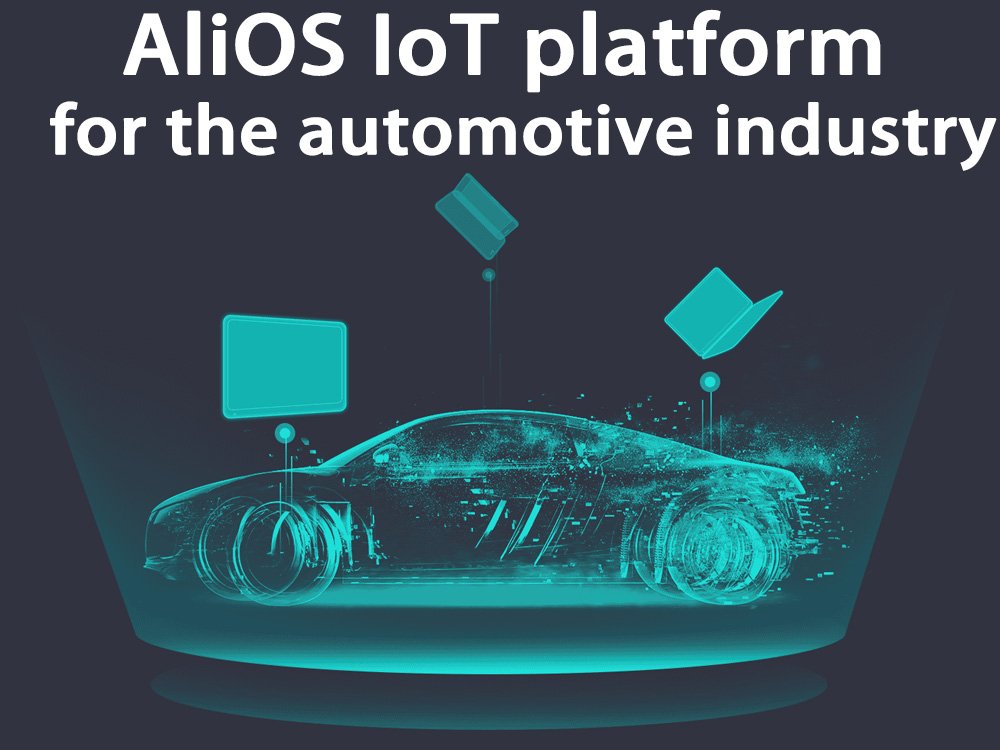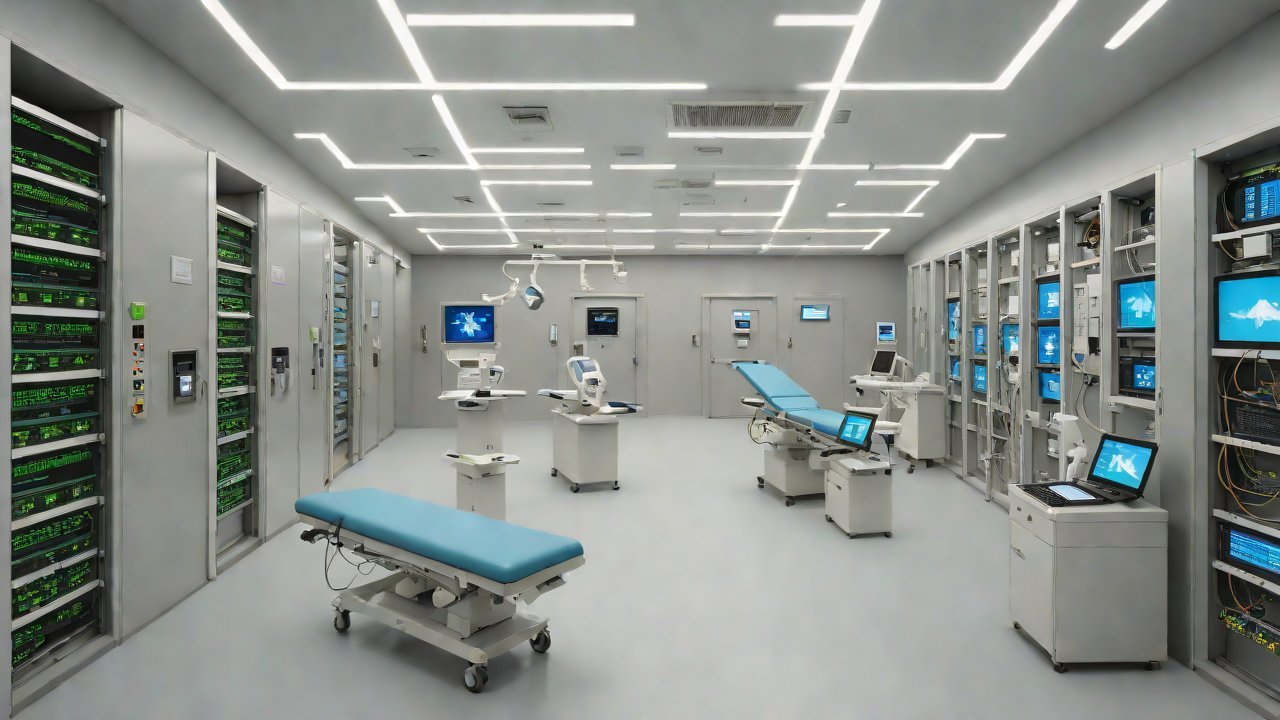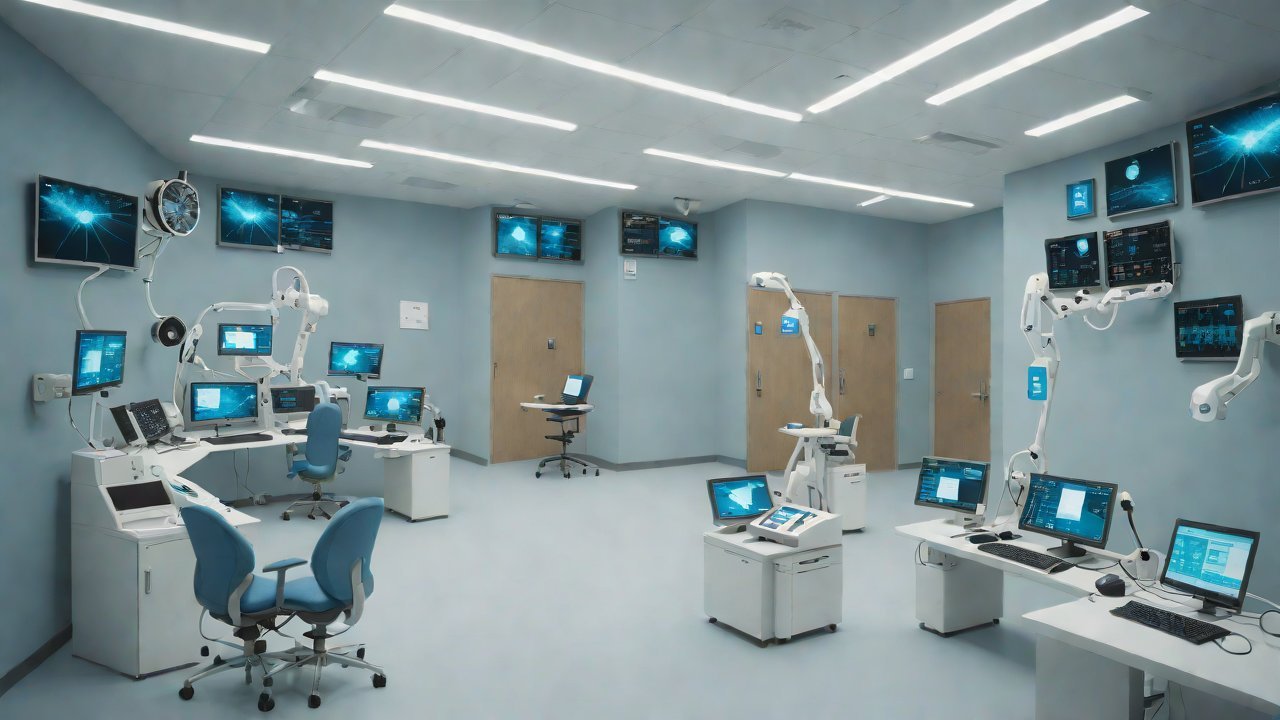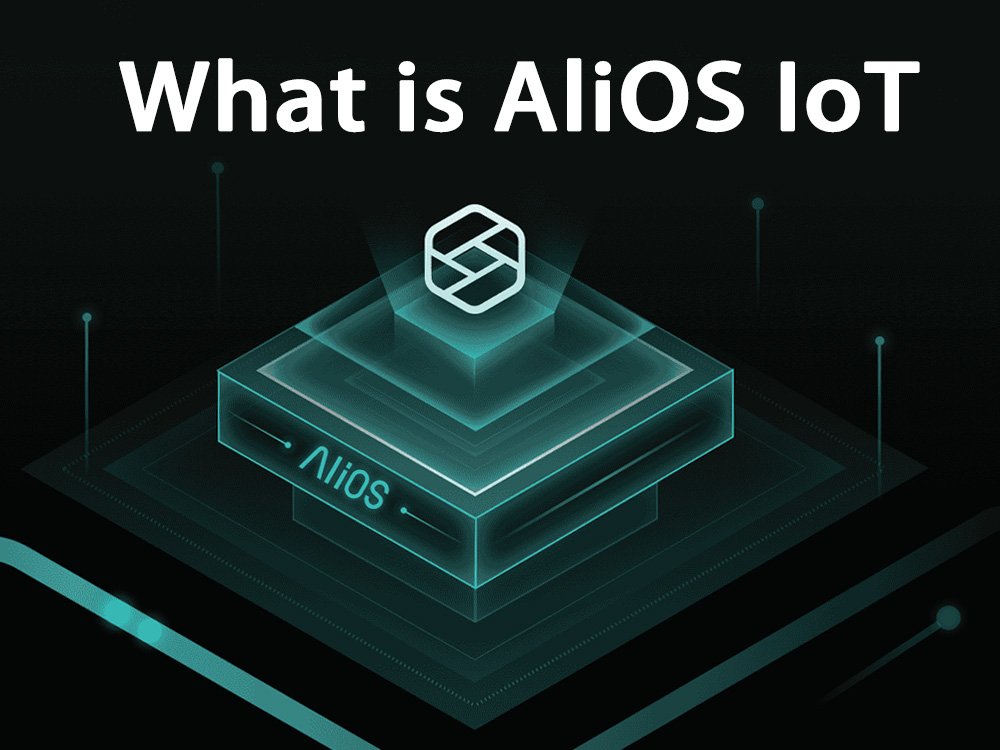
What is AliOS Internet of Things (IoT)?
AliOS IoT is an sensor-devices-and-solutions-examples/">IoT operating system developed by Alibaba Group, which aims to provide stable, efficient and easy-to-develop operating system support for automobiles, IoT terminals, IoT chips and industrial fields.
The following is a detailed introduction to AliOS IoT, which will try to fully and deeply explain its key features and applications.
AliOS IoT Overview
AliOS, the full name of Alibaba IoT operating system, has been committed to creating a new IoT ecosystem with the slogan of “driving all things intelligent” since Alibaba announced the upgrade of its operating system strategy and released a new brand on September 27, 2017. The system is developed from Alibaba’s previous YunOS.
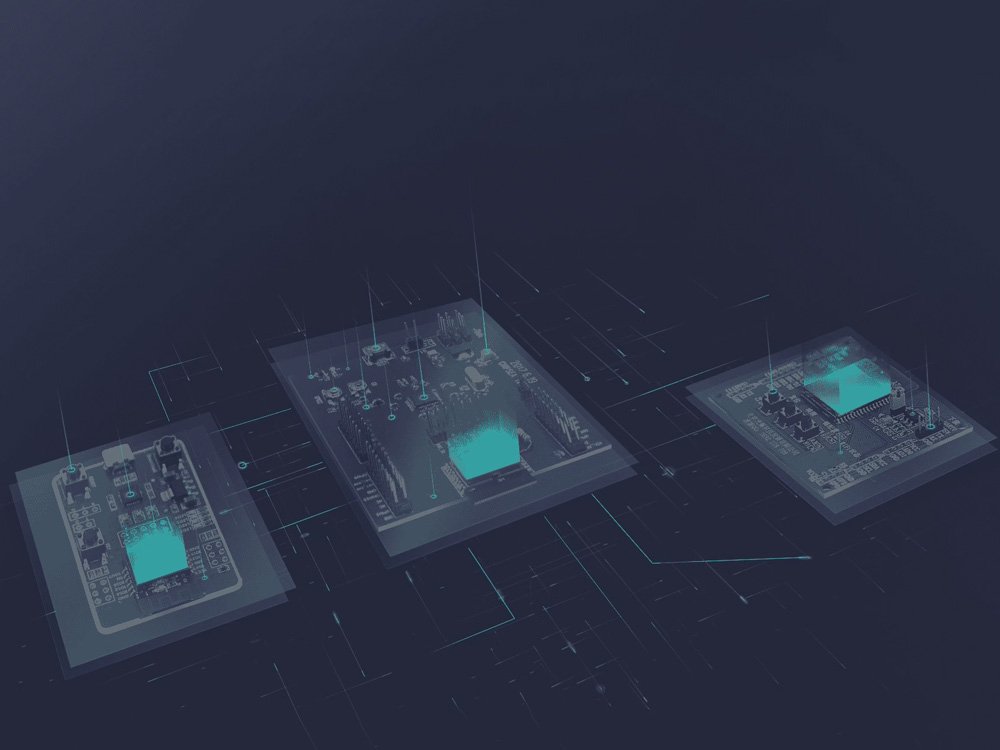
AliOS IoT in China 2025
YunOS initially focused on mobile phones, while AliOS targeted a broader IoT device market, especially IoT devices such as automobiles. This transformation not only reflects Alibaba’s keen insight into the IoT market trend, but also demonstrates its strategic vision in intelligent transformation.
AliOS IoT Core Features
1. Multitasking and high performance:
- AliOS IoT operating system supports multitasking and has powerful graphics, audio and video and voice processing capabilities. This makes it particularly suitable for IoT devices with high CPU performance and memory requirements, such as automobiles.
2. Modularity and Scalability:
- AliOS Things (a lightweight version of AliOS) adopts a modular design concept, which makes the entire system highly flexible and unified. Its architecture is mainly divided into the hardware abstraction layer (HAL), the middleware layer, and the application layer. This layered design helps to improve the maintainability of the system and also facilitates the integration and expansion of third-party libraries.
3. Cloud Integration and Data Security:
- The AliOS IoT operating system is deeply integrated with Alibaba Cloud to ensure seamless connection between devices and the cloud. With the powerful computing power and massive data processing capabilities provided by Alibaba Cloud, devices based on AliOS can easily achieve remote monitoring, data analysis and other functions. At the same time, the system has a built-in encryption algorithm library that supports multiple encryption standards to ensure that sensitive information is not stolen during transmission. All data is strictly encrypted and stored in the cloud, and illegal access is prevented through the authentication mechanism.
4. Low Power Consumption and Memory Optimization:
- AliOS Things pays special attention to low power consumption and memory optimization, and is suitable for various small IoT devices. By finely managing the stack size and reducing unnecessary global variables, memory fragmentation can be avoided to a large extent, thereby extending the battery life of the device.
5. Developer-friendly:
- The AliOS IoT operating system provides developers with a wealth of online resources and active community support. Developers can install the latest version of IDE (Integrated Development Environment) such as Visual Studio Code or Eclipse, and download and install the official AliOS Things plug-in through the plug-in market. In addition, the system also supports a variety of mainstream microcontroller architectures, providing developers with great freedom of choice.
Application scenarios of AliOS IoT
AliOS IoT platform for the automotive industry
1. Automotive field:
- The application of the AliOS IoT operating system in the automotive field is particularly prominent. Based on the Internet car open platform built by AliOS, it provides a full-vehicle intelligent solution for the entire automotive industry. This includes applicable scenarios such as full-vehicle intelligence and cross-end interconnection, providing customized solutions for automakers.
2. Smart home:
- In the field of smart home, the AliOS IoT operating system realizes remote control, timed power on and off, and other functions by connecting various home appliances to the same network. This greatly improves the convenience of life and provides users with a more intelligent home experience.
3. Smart City and Intelligent Transportation:
- AliOS IoT operating system is also widely used in the fields of smart city and intelligent transportation. By integrating the powerful functions of Alibaba Cloud, the system can achieve real-time monitoring and data analysis of urban traffic, thereby optimizing traffic flow, reducing congestion and improving travel efficiency.
4. Industrial Field:
- In the industrial field, the application of AliOS IoT operating system is also constantly being explored and expanded. By providing stable and efficient operating system support, AliOS provides strong support for industrial intelligent transformation. Enterprises can monitor the status of equipment in real time, warn of failures in advance, and effectively improve production efficiency.
Future Outlook of AliOS IoT
1. Deepen cooperation with automakers:
- AliOS will continue to deepen cooperation with automakers to promote the popularization and development of intelligent connected cars. By providing full-vehicle intelligent solutions and cross-end interconnection technologies, AliOS will help automakers create more intelligent and personalized automotive products.
2. Expand application scenarios in other IoT device fields:
- In addition to the automotive field, AliOS will also actively expand application scenarios and technological innovations in other IoT device fields. This includes smart home, smart wearables, smart cities and other fields. By providing stable and efficient operating system support and cloud integration capabilities, AliOS will help these fields achieve a more intelligent and convenient application experience.
3. Increase open source efforts:
- AliOS will increase open source efforts to attract more partners and developers to join the ecosystem. By opening APIs and source code, AliOS will promote the innovation and development of IoT technology and jointly promote the popularization and application of IoT technology.
4. Focus on the integration and application of new technologies:
- AliOS will also focus on the integration and application of new technologies such as artificial intelligence and big data. By combining these new technologies with IoT technology, AliOS will continuously improve the intelligence level of the system and user experience. For example, by using artificial intelligence algorithms to analyze and predict the collected data, AliOS can provide users with more personalized services and suggestions.
Learning and use of AliOS IoT
For users who want to learn and use the AliOS IoT operating system, there are many ways to obtain relevant resources and information.
First, you can visit the official website of AliOS (alios.cn) to learn about the latest version of the system, its features, development documents, etc.

AliOS IoT Platform – China Alibaba Cloud AliOS IoT Platform Smart Travel Internet of Vehicles Services
Secondly, you can participate in online or offline training activities held by AliOS to exchange learning experiences with experts and other developers. In addition, you can also read relevant books, blogs, forums, etc. to gain a deeper understanding of the technical principles and application practices of AliOS.
During the learning and use process, users can also use the development tools and simulators provided by AliOS for practical operation and debugging to continuously improve their skills.
Conclusion
In summary, as an important part of the IoT ecosystem created by Alibaba Group, AliOS IoT operating system stands out among many similar products with its excellent performance, flexible scalability and powerful cloud integration capabilities.
By continuously deepening cooperation with partners in various fields, expanding application scenarios and technological innovation, and increasing open source efforts, AliOS will continue to promote the development and innovation of IoT technology and provide users with a more intelligent and convenient application experience.
In the future, with the continuous popularization of IoT technology and the continuous expansion of application fields, AliOS IoT operating system will surely usher in a broader development prospect and richer application scenarios.
AliOS Internet of Things (IoT) Platform PDF Download
About IoT Cloud Platform
IOT Cloud Platform (blog.iotcloudplatform.com) focuses on security IoT, industrial IoT, military IoT, best IoT projects, IoT modules, embedded development, IoT circuit boards, IoT solutions, Raspberry Pi development and design, Arduino programming, programming languages, RFID, lora devices, IoT systems, IoT design, IoT programming, sensors, smart homes, smart cities, new energy, semiconductors, smart hardware, photovoltaic solar energy, lithium batteries, chips and other scientific and technological knowledge.
FAQs
The following are frequently asked questions and answers about alios IoT:
AliOS IoT is an IoT ecosystem built on the AliOS operating system developed by Alibaba. The system is aimed at automobiles, IoT terminals, IoT chips and industrial fields, and aims to achieve data interaction and intelligent control between devices by connecting various IoT devices. AliOS IoT has become one of the preferred operating systems for IoT devices with its lightweight, diverse application support and high security, and is widely used in smart homes, smart transportation, industrial IoT and other fields.
AliOS Things is an open source operating system developed by Alibaba Cloud for the IoT field. It aims to provide a high-performance, highly scalable basic platform to simplify the development process of IoT devices. AliOS Things supports multiple hardware platforms, has rich components and drivers, and can run on various microcontrollers (MCUs) and microprocessors (MPUs).
AliOS IoT is an IoT operating system based on the Linux kernel and LiteOS, and integrates various services of Alibaba Cloud. It aims to provide developers with a lightweight, efficient and easy-to-expand IoT development platform.
AliOS IoT is mainly used in the following aspects:
Smart home: AliOS can connect smart home appliances, smart door locks, smart cameras and other devices to achieve remote control and intelligent linkage, and improve the convenience and comfort of home life.
Smart health: Combining sensor technology and cloud computing capabilities, AliOS can be applied to the field of smart health, monitoring body data, providing health advice and other functions.
Smart transportation: AliOS can be used for applications such as smart vehicle systems, smart traffic lights, and vehicle navigation to improve traffic safety and efficiency.
Industrial IoT: AliOS can also be applied to the field of industrial automation to realize functions such as equipment monitoring, remote maintenance, and intelligent production, and improve industrial production efficiency and quality.
In addition, AliOS is also suitable for IoT devices with high CPU performance and memory requirements, such as automobiles, to provide them with full-vehicle intelligent solutions. In general, the application scenarios of AliOS IoT are wide and diverse, covering multiple fields such as smart home, smart health, smart transportation, industrial IoT, and automobiles.
AliOS IoT and Android each have their own advantages and applicable scenarios, and it is impossible to generalize which is better. AliOS IoT is mainly optimized for IoT devices, focusing on low power consumption, real-time and security, and is suitable for use in smart homes, smart transportation and other fields. The Android system is widely used in devices such as smartphones and tablets, with a rich application ecosystem and a strong user base. Therefore, choosing which system is better depends on the specific application scenarios and needs.
The shortcomings or deficiencies of AliOS IoT mainly include the following points:
Imperfect ecological chain: Compared with the Android system, AliOS IoT is not yet perfect in terms of application ecological chain, which may limit the realization of some advanced applications and functions.
Delayed system update: The system update speed of AliOS IoT may be relatively slow, resulting in the device’s inability to keep up with the latest technological trends in terms of function and security.
Compatibility issues: Since AliOS IoT is developed based on a specific architecture and platform, there may be problems in compatibility with other non-Ali devices or systems.
Promotion difficulty: Due to its relatively small market influence, AliOS IoT may face certain difficulties in the promotion process, which may affect its market share and user experience.
AliOS IoT can seamlessly access Alibaba Cloud’s IoT platform through built-in support for Alibaba Cloud IoT Hub to realize functions such as identity authentication, remote control, and real-time monitoring of smart home devices. It supports multiple chip platforms and development boards, facilitates cross-platform migration and reuse, and is widely used in smart home scenarios such as smart bulbs, air conditioners, and security equipment.
Security: Integrate Alibaba Cloud’s security solutions to ensure the security of data transmission between devices and the cloud.
Ease of use: Provide an intuitive development environment and detailed documentation to reduce the difficulty of development.
Scalability: Rich component libraries and open interfaces facilitate customized development and third-party service access.
Eco-compatibility: Fully connect with Alibaba Cloud’s ecosystem and integrate many industry solutions.
Connection problems: Smart home devices rely on Internet connection and wireless communication technology, and may experience unstable or disconnected connections.
Compatibility issues: There may be compatibility issues between smart home devices of different brands and types, making it difficult to achieve interconnection and collaboration.
Security issues: When smart home devices are connected to the Internet, there may be a risk of being hacked, resulting in security risks such as user privacy leakage and device control.
Check the wireless network: Make sure that the router is working properly and the distance between it and the smart device does not exceed the signal coverage range.
Restart the device: Try restarting the smart device to see if it can restore normal connection.
Update software and firmware: Make sure the software versions of smart devices and related applications are the latest.
Use strong passwords: Set strong passwords for smart devices and related applications, and avoid using default usernames and passwords.
Update software regularly: Keep the software versions of smart devices and related applications up to date to get the latest security patches.
Strengthen network security: Use secure wireless networks and firewalls to protect the connection of smart devices.
Unified platform: Choose a central control platform that can integrate various smart devices and brands, such as smart voice assistants or smart home controllers.
Choose products of the same brand: If users already have a smart device of a certain brand, they can choose to purchase other devices of the same brand to improve compatibility.
AliOS Things is closely related to Alibaba Cloud IoT platform. As an operating system on the device side, AliOS Things provides connectivity between devices and Alibaba Cloud IoT platform. Developers can use AliOS Things to develop firmware for IoT devices to implement data collection, processing, and reporting functions on the device side. At the same time, Alibaba Cloud IoT platform is responsible for data communication and management between devices and the cloud, providing developers with a complete IoT solution.
AliOS Things supports multiple communication protocols, including MQTT, CoAP, etc. These protocols enable devices to interact with cloud services efficiently and achieve real-time data transmission and processing.
The differences between AliOS Things and MQTT and CoAP are as follows:
AliOS Things:
Nature: AliOS Things is a lightweight IoT embedded operating system launched by Alibaba Cloud, dedicated to building a cloud-integrated IoT infrastructure.
Function: It provides a wealth of connection components and capabilities, such as self-organizing network protocol (uMesh), socket adaptation layer (SAL), TCP/IP network protocol stack (LwIP), etc., and supports multiple connection protocols (such as WiFi, BLE, LoRaWAN, etc.). – Application scenarios: It can be widely used in smart home, smart city, new travel and other fields.
MQTT:
Nature: MQTT is a message transmission protocol developed by IBM and others, based on the publish/subscribe model.
Features: It supports all platforms and can connect networked objects to the Internet; it uses TCP/IP to provide network connection to ensure the orderly, lossless and bidirectional transmission of messages; it has the characteristics of small data transmission, low power consumption and small network traffic.
Application scenarios: It is suitable for scenarios where a large number of remote sensors and control devices with limited computing power and working on low-bandwidth and unreliable networks need to communicate.
CoAP:
Nature: CoAP is a restricted application protocol tailored for IoT devices with limited resources and based on the UDP protocol.
Features: Built-in discovery support and content negotiation, allowing devices to spy on each other to find ways to exchange data; low requirements for network bandwidth and network stability.
Application scenarios: It is suitable for IoT devices with limited resources, such as devices based on NB-IoT and LoRa, and provides functions such as remote firmware upgrade (FOTA).
Using AliOS Things to develop IoT applications usually includes the following steps:
Select a suitable hardware platform and ensure that it supports the AliOS Things operating system.
Download and install the AliOS Things development tool chain and IDE (such as VSCode, etc.).
According to application requirements, obtain or develop the required components and drivers in the open source community of AliOS Things.
Write firmware code on the device side to implement data collection, processing and reporting functions.
Burn the firmware code to the hardware platform, debug and test it.
Create products, register devices, and configure data flow rules on the Alibaba Cloud IoT platform.
Develop cloud applications, process data uploaded by devices, and implement business logic.
The advantages of AliOS Things mainly include the following points:
High performance: AliOS Things provides efficient task scheduling and memory management mechanisms, enabling devices to handle more concurrent tasks and store more data.
High scalability: AliOS Things supports modular design, and developers can flexibly add or delete components and drivers according to application requirements.
Rich components and drivers: AliOS Things provides a rich component and driver library, supports a variety of hardware platforms and sensors, and reduces the difficulty of development.
Seamless integration with Alibaba Cloud IoT platform: AliOS Things has built-in support for Alibaba Cloud IoT platform, allowing devices to easily communicate and interact with cloud services.
IOT Cloud Platform
IOT Cloud Platform is an IoT portal established by a Chinese IoT company, focusing on technical solutions in the fields of agricultural IoT, industrial IoT, medical IoT, security IoT, military IoT, meteorological IoT, consumer IoT, automotive IoT, commercial IoT, infrastructure IoT, smart warehousing and logistics, smart home, smart city, smart healthcare, smart lighting, etc.
The IoT Cloud Platform blog is a top IoT technology stack, providing technical knowledge on IoT, robotics, artificial intelligence (generative artificial intelligence AIGC), edge computing, AR/VR, cloud computing, quantum computing, blockchain, smart surveillance cameras, drones, RFID tags, gateways, GPS, 3D printing, 4D printing, autonomous driving, etc.
